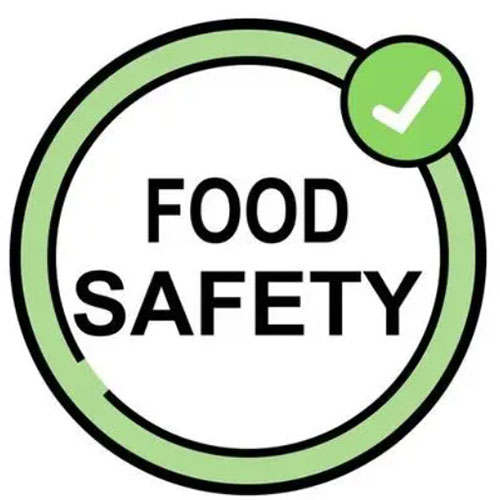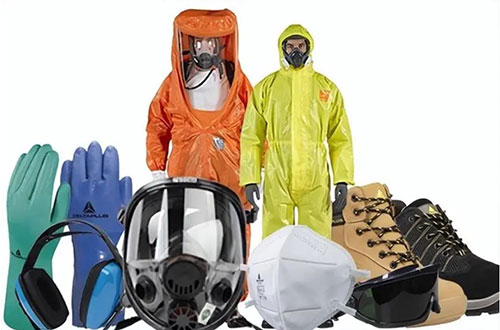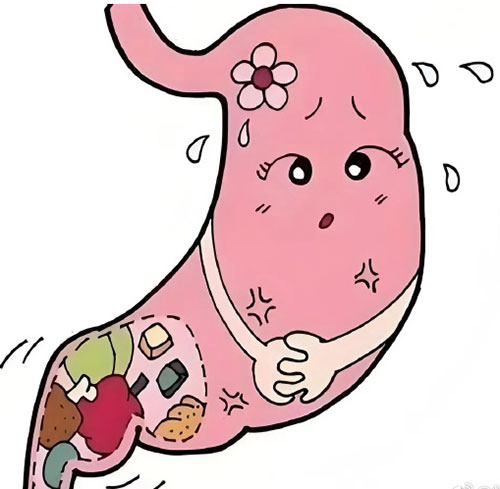The answer is Yes.
Although excessive intake or exposure is harmful, proper use of sodium tripolyphosphate is not harmful.
Sodium tripolyphosphate is safe in food industry
Food grade sodium tripolyphosphate is used as a food additive in daily life, and is often used in synthetic detergents in the chemical industry, and the content will be within the national safety limits.

There are modern inspection methods applied which can ensure the content of this chemical in food at harmfulless level. To know methods details, please check the article what is sodium tripolyphosphate for the details.
Generally speaking, under reasonable use, sodium tripolyphosphate can be decomposed into non-toxic substances by the human body and excreted through metabolism, which is harmless to the body.
Sodium tripolyphosphate is safe under proper protects when using
Protective gears
The staff who produce and use sodium tripolyphosphate should wear protective gears, and the production workshop should be equipped with air supply and exhaust facilities.

Proper storage method make the sodium tripolyphosphate safe
It should be stored in a cool, ventilated and dry warehouse, and should not be stacked in the open air. Don’t let it be deteriorated by moisture, prevent high temperature and harmful contamination.
When loading and unloading, it should be carried gently and put down gently to prevent the package from being damaged.
Properly using with controlled intake and exposure is safe
On the other hand, excessive intake and excessive exposure to sodium tripolyphosphate can be harmful to the body.
I. Proper intake:
1, stimulate the gastrointestinal tract:
Sodium tripolyphosphate belongs to the phosphate, excessive intake of phosphate, will produce stimulation of the gastrointestinal mucosa, abdominal pain, diarrhea, nausea and other gastrointestinal symptoms. If the gastrointestinal function is not good, it may cause gastrointestinal inflammation.

2, Calcium and magnesium and other essential trace elements loss:
The excessive intake will lead to excessive phosphorus content in the body, will affect the absorption and utilization of calcium and magnesium ions, resulting in calcium and magnesium content is relatively small.
3, Liver damage:
Sodium tripolyphosphate usually need to be metabolized by the liver, prolonged use of large quantities of sodium tripolyphosphate may cause elevation on glutamic pyruvic transaminase(GPT), glutamic oxaloacetic transaminase(GOT, and bilirubin. It will result in liver damage. In time discontinuation, the abnormalities of liver function can be gradually recovered.
4, Kidney damage:
Sodium tripolyphosphate needs to be excreted through the kidneys, if a large number of long time use, can cause transient elevation of urea nitrogen and creatinine. After the stop of using, renal function can generally return to normal.
II, Proper exposure
Proper exposure is safe, while excessive exposure to sodium tripolyphosphate can also be harmful.

1, Irritating to the eyes:
If sodium tripolyphosphate accidentally enters the eyes, it can cause an irritation reaction, leading to eye pain, redness, swelling and tearing. When using laundry detergents containing sodium tripolyphosphate for a long time, symptoms such as sneezing and coughing may occur. And when using this type of detergent, if it enters the eyes, it will appear red, swollen, painful and other symptoms, causing damage to the eyes.
2, Induced allergy:
If you are allergic to sodium tripolyphosphate, you may have coughing, sneezing, chest tightness, itchy skin and other allergic symptoms.
Conclusion
The correct and moderate use of sodium tripolyphosphate is not harmful and is safe. Excessive intake and excessive exposure to sodium tripolyphosphate can be harmful.
The sodium tripolyphosphate uses are more and more important in modern lives. Thanks to the hard work of scientists and engineers, we benefit from this chemical’s goodness.
Related article:

